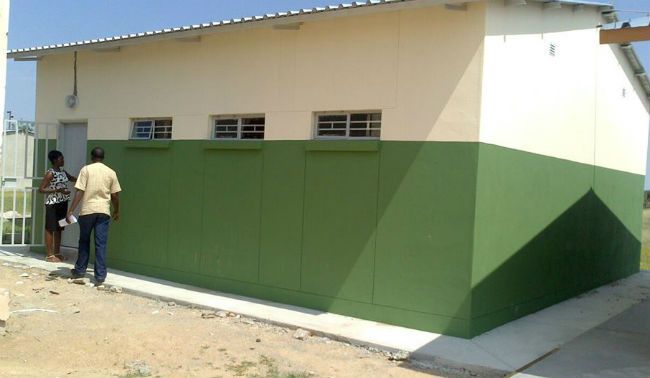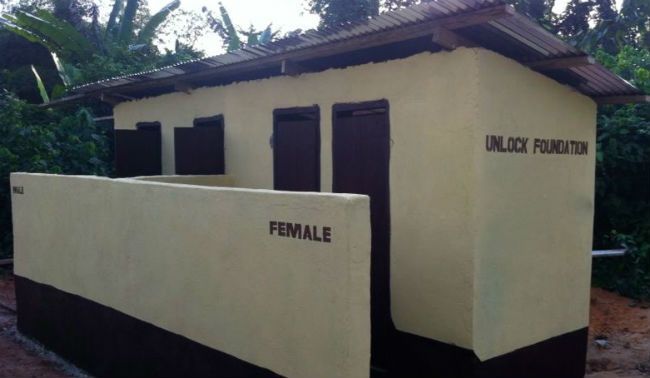“You don’t have to give up your passions in other areas to make a difference in the world,” sagely advised 27-year-old Scott Karrel, co-founder and director of the organization Unlock Foundation, during a recent conversation. “It’s a challenge, but I have a strict rule in my book – I can still have a global impact while working another job that I am passionate about.”
Scott has been doing precisely that – working a full-time job as a marketer at the famous publishing house Conde Nast, while simultaneously managing his non-profit organization Unlock Foundation – an organization that seeks to address critical educational gaps in rural African schools.
In my conversation with Scott, it was clear that passion is his main driver. Born and raised in New Jersey, Scott had the benefit of attending “an amazing high school” that supported his educational and personal development. Speaking to the awakening of his global consciousness, Scott said, “I think everyone has pivotal moments in his or her life that help them get involved – and mine was learning about the insane statistic that 58 million children are out of school in the world. It gave me awareness to what was going on.”

Photo: Unlock Foundation | Scott Karrel practicing the traditional Mbukushu dancing with a student at Unlock Foundation's partner school in Divundu, Namibia
Scott went on to say, “Most people live in a bubble. Here I was, this 15-year-old kid, not really understanding my world outside of New Jersey or the United States.” During high school, Scott capitalized on an opportunity to travel abroad over the summer to Ghana. Over the two-months he was away, Scott recalls the reality being brought home that so many children globally lack access to school. Before his program in Ghana, those 58 million children unable to get an education was an intangible fact – but after his time abroad he was able to put a face and name to the massive number of kids who aren’t getting schooling.
Scott’s understanding of the complexities to the barriers in getting an education became more nuanced during his time in Ghana. Having witnessed a member of his host family fall ill to malaria helped frame the obstacles to receiving an education that are not part of the consciousness of the average American.
“Before [visiting Ghana] I hadn’t even heard of malaria - I hadn’t heard of someone missing so much school for something that wasn’t a broken arm or a broken leg...I become so empowered from that trip [to Ghana],” said Scott, “And became aware of how much better the world would be if more children were at school."
Upon graduating from high school, his interest in foreign affairs and humanitarian work led him to Boston University, where he studied International Relations, focusing on the continent of Africa. University was a time for idealism and more academic contemplation for Scott. With an earnest laugh he remembers, “I thought I could become the next MLK or Nelson Mandela in education. With so many people who are doing so many great things for the world, and so many good ideas surrounding you in college… I felt like from my little dorm room in Boston, I could solve global poverty,” Scott recounts.

Photo: Unlock Foundation | Unlock Foundation's newly constructed library at their partner school in Outapi, Namibia
Committed to learning more about countries within Africa, Scott went to Swaziland for a summer during college and worked at a Neighborhood Care Point. He said being in Swaziland had him better understand the difference between countries – and the specific challenges nations and regions face in combating low-educational access and attainment.
Too often, Africa is generalized as a whole, and individual countries’ strengths and weaknesses are not fully understood by Westerners. “People can think,” said Scott, “ that all of Africa is facing this one issue – and streamline it… but that’s not true, and my personal experiences opened my eyes to understanding differences between places and countries.”
Post-college, Scott returned to Africa through the organization WorldTeach, and was stationed in northern Namibia - in the settlement of Divundu. “I really wanted an organization where I could make a meaningful connection with the community and work within current systems - which is why I volunteered through WorldTeach. I wasn’t a teacher prior to WorldTeach, and didn’t know Namibian history, Namibian culture, and Namibian lifestyle…as a humanitarian, it was important to recognize that I was an American and be aware of that, but at the same time, I wanted to immerse myself in the community.”

Photo: Unlock Foundation | Unlock Foundation's Sanitation Project at Old Odunase School in Ghana includes 4 toilets for the boys and girls, and 2 sinks provided by Sundara
Scott’s close connection to the Divundu community led him to the creation of Unlock Foundation. Scott recounts, “I never had any intention of creating a non-profit, but at the end of my teaching tenure, and in talking to the community, students, and teachers, it was realized that by working together, we could make sure the kids were getting the best education possible if we started something geared towards that… the creation of Unlock Foundation came from a ‘what’s missing moment.’”
Collaboration is the key to the success of Unlock Foundation since it was founded four-years ago. Upon returning home from Namibia, Scott incorporated the Unlock Foundation in New Jersey as a non-profit. He took on support from Michelle Shapiro, who works as Director of Marketing for Unlock Foundation and the assistance of in-country directors to manage the foundation abroad.
So, how does Scott communicate with communities halfway across the world to make sure Unlock Foundation is staying true to its mission? Technology. Explains Scott, “Even though I am thousands of miles away from the community in Divundu, I am able to communicate with the students and teachers in that community even better than I am with some of my colleagues in New York City through technology!”
Replicating the model of working within the community through the assistance of community directors, Scott and Michelle expanded the Unlock Foundation to a school in Ghana, and then Erkki Tauya Junior Secondary School, in another region of rural Namibia. “It’s important to remember”, mused Scott, “that each community has it’s own issues, and that through our fundraising power, you can expand out to help communities needs more specifically.”
Thinking back on his experience, Scott advises fellow young humanitarians, “It’s all about collaboration and working together. Our motto at Unlock Foundation is ‘together we can... At the end of the day, it’s the communities that make the push for their successes - Unlock Foundation simply assists in making projects possible through fundraising and marketing efforts. Our goal is that by 2020, Unlock Foundation can be turned over to the communities to run.”

Photo: Unlock Foundation | Scott Karrel, and Unlock Foundation's Chief Marketing Officer, Michelle Shapiro, with Divundu Combined School's Student Government on a leadership training field trip
The reason for the critical importance of collaboration is epitomized in a story Scott tells where he felt that technology in the classroom was the best approach to help students learning - but after addressing the community’s needs with students and teachers, it was found that toilets at the school was of most benefit. “This is why listening and collaborating is so important… what you want isn’t necessarily what students want,” says Scott.
Scott has also been successful with collaborating with other humanitarian organizations, such as Erin Zaikis of the organization Sundara in supporting hygiene education in its partner schools, as well as garnering the support of the Namibian and Ghanaian diaspora within New York.
“For me, it’s important to remember,” said Scott, “I am not always going to be an expert, so it’s important to reach out to people who know about current systems within countries, or are able to tell you what they need.”
Interested in learning more? Check-out the amazing work of Unlock Foundation at www.unlockfoundation.org, as well as Unlock Foundation’s Instragram. As always share your thoughts, opinions, and comments in the decision section below - like Scott said, “It’s all about open communication.”